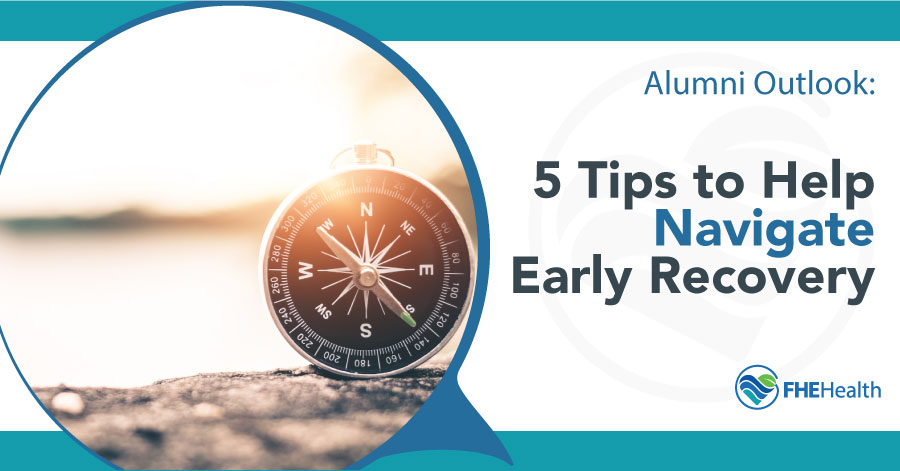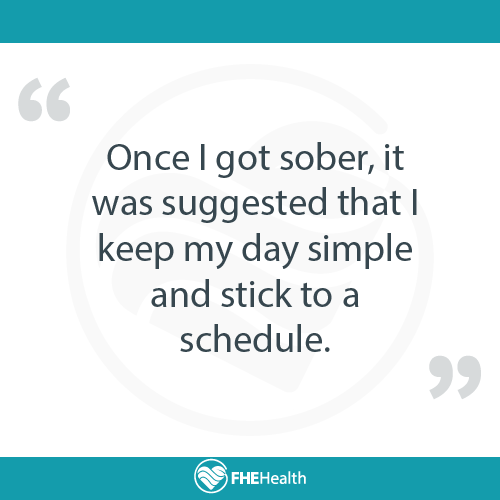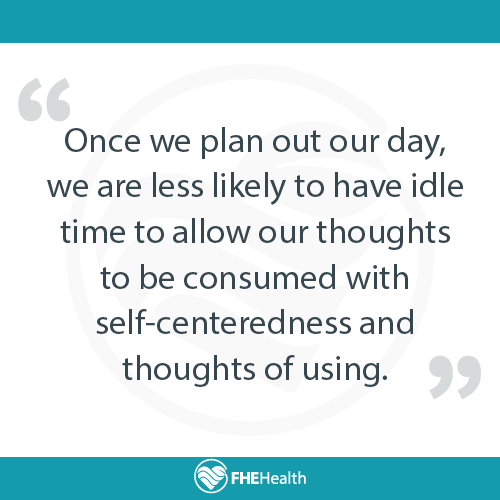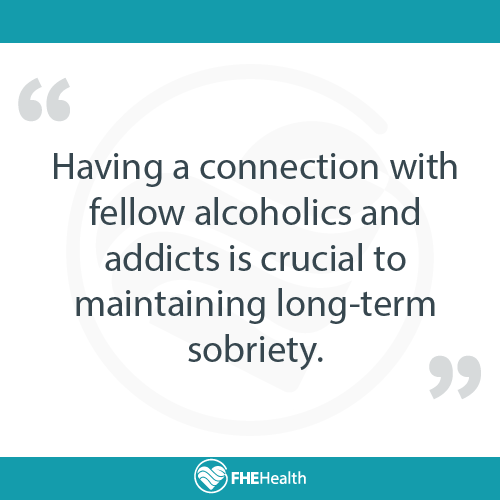
Many people say the first year is the most important and I would have to agree. The first year of recovery is when we are most vulnerable but also where we get the opportunity to lay down the foundation for our new, sober lives.
Looking back at the first year of my sobriety, I realize that hindsight really is 20/20. I didn’t take many of the suggestions that were given to me – and I suffered greatly. I spent the first year of my sobriety living on the premise “self will run riot.” I was the textbook definition of an alcoholic attempting to play the director.
When I first got sober, my perceptions, behaviors, and emotions were all but consistent. I was irrational, impulsive, and like a tourist in a foreign country with no translator – absolutely lost. Looking back, I am grateful for the simple principles and practices I did apply because I genuinely believe that is why I am still sober today.
Here are a few tips that can help you navigate the first year in early recovery:
Establish Discipline and Stick to a Schedule
 Often, you will hear people in recovery say, “Keep it simple stupid.” That overused recovery quote has never made more sense to me. Before getting sober, my schedule revolved around, chasing my next fix. I spent countless hours chasing drugs and alcohol, using drugs and alcohol, and then recovering from the substances – only to wake up and repeat the pattern all over again. My life was completely unmanageable.
Often, you will hear people in recovery say, “Keep it simple stupid.” That overused recovery quote has never made more sense to me. Before getting sober, my schedule revolved around, chasing my next fix. I spent countless hours chasing drugs and alcohol, using drugs and alcohol, and then recovering from the substances – only to wake up and repeat the pattern all over again. My life was completely unmanageable.
Once I got sober, it was suggested that I keep my day simple and stick to a schedule. At first, I had to plan out every hour of my day. I made lists, I consulted with my sponsor, and I found myself implementing discipline into my routine. Here are a few things you can add to your list of daily activities to help manage your time in early recovery:
- Wake up
- Make your bed/clean up the house
- Meditate
- Eat
- Work
- Make a 12-Step Meeting
- Exercise
- Take Medication
- Help another alcoholic
- Spend time with family/friends
- Take inventory
- Read/Pray
- Sleep
This list may sound extremely simple and redundant, but that’s exactly what I needed. Once we plan out our day, we are less likely to have idle time to allow our thoughts to be consumed with self-centeredness and thoughts of using. Working with my sponsor, I started doing the things that she did. I came up with a weekly schedule filled with to-do’s that were listed by order of priority. The more I follow suit and stay on track, the smoother my week carries out.
Make Meetings a Priority
 If you went to treatment, you likely learned about the value of attending 12-Step group meetings (i.e., Alcoholics Anonymous/Narcotics Anonymous). The beauty of recovery is the power of choice that is restored. You get the ability to choose what kind of Fellowship best suits your individual needs. The benefits of 12 step meetings are without question. You don’t have to be a believer, but 12-step meetings keep us connected with a universal solution and a fellowship that is invaluable to recovery.
If you went to treatment, you likely learned about the value of attending 12-Step group meetings (i.e., Alcoholics Anonymous/Narcotics Anonymous). The beauty of recovery is the power of choice that is restored. You get the ability to choose what kind of Fellowship best suits your individual needs. The benefits of 12 step meetings are without question. You don’t have to be a believer, but 12-step meetings keep us connected with a universal solution and a fellowship that is invaluable to recovery.
I was an avid meeting goer. Keeping up with total transparency, I didn’t attend meetings for the right reasons in early recovery. Generally, I was looking for a cute boy and a time to hang out and smoke cigarettes outside of the meetings. Overtimes, I began making connections within the Fellowship. Once my self-propelled pain was great enough, I leaned into the Fellowship, and the women I met – carried me when I couldn’t carry myself. I cannot express the importance of picking up a service commitment, getting connected, and attending meetings enough. Having a connection with fellow alcoholics and addicts is crucial to maintaining long-term sobriety.
Calm Your Mind: Pray and Meditate
This subject is not an easy one to discuss. Many people associate prayer with religion, and many people walk into recovery, not wanting anything to do with a “god” or any religion. Be open-minded. Prayer is simply a way to tap into whatever energy you want to manifest. Meditation is the best way to quiet the noise in your head and to take time to breathe before reacting impulsively.
Meditation became an early practice that I implemented in treatment and carried into my first year of sobriety. You don’t have to be a monk to take the time to meditate. Before I got sober, I couldn’t spend 3 seconds alone with myself – much less spend 20 minutes meditating before starting my day. The truth is, the more time I dedicated to sitting quietly, seeking answers – the more that was revealed to me. Several benefits follow taking the time to meditate every day. Most importantly, meditation is a great way to learn how to pause before reacting and a great way to sort through feelings and emotions without feeling too overwhelmed.
Be Transparent: Remember It’s Okay Not to Be Okay.
 Looking back, one of the most important and hardest lessons I learned in early recovery was maintaining total transparency. Before getting sober, I had no idea what honesty and intimacy truly meant. I couldn’t be honest with myself. I lived in a world of utter delusion and isolation. I believed that transparency equaled weakness. The truth is, total transparency is my saving grace in recovery.
Looking back, one of the most important and hardest lessons I learned in early recovery was maintaining total transparency. Before getting sober, I had no idea what honesty and intimacy truly meant. I couldn’t be honest with myself. I lived in a world of utter delusion and isolation. I believed that transparency equaled weakness. The truth is, total transparency is my saving grace in recovery.
In the first year, it is vital that you maintain total transparency with your sponsor and the other sober supports in your life. It’s okay not to be okay. In other words, it’s not uncommon to feel overwhelmed, sad, anxious, angry, and even pained in recovery. What is important is what you do with those feelings. Experience has taught me that sitting in uncomfortable feelings, in isolation, only exacerbates the problem. When I’m feeling uneasy, I make it a point to pick up the phone and call another recovering alcoholic. Transparency is the key to maintaining long-term sobriety.
Don’t Pick Up, No Matter What
I know, it’s cliché. However, there will come a time when no one answers the phone when you can’t sit still long enough to meditate when the meeting wasn’t on the topic you were hoping it would be, and when you just can’t seem to relax. These are the moments when life feels seemingly insurmountable, and the appeal to have “just one more drink” may creep up. It is important to remember that before the first drink, you have the choice not to pick up.
If you have the desire to stay sober, and it outweighs your desire to use, you can get through this. Your Higher Power will continue to guide you through these less than favorable moments and give you the strength to persevere. Try going for a run, indulge in a pint of ice cream, and call another alcoholic. Whatever it is that you need to do – don’t pick up. Remember that feelings aren’t facts and they are only temporary. You don’t have to make a permanent decision on temporary feelings. Let the feelings come and pass, like waves in the ocean. Revel in the fact that you have made it another day clean and sober.






